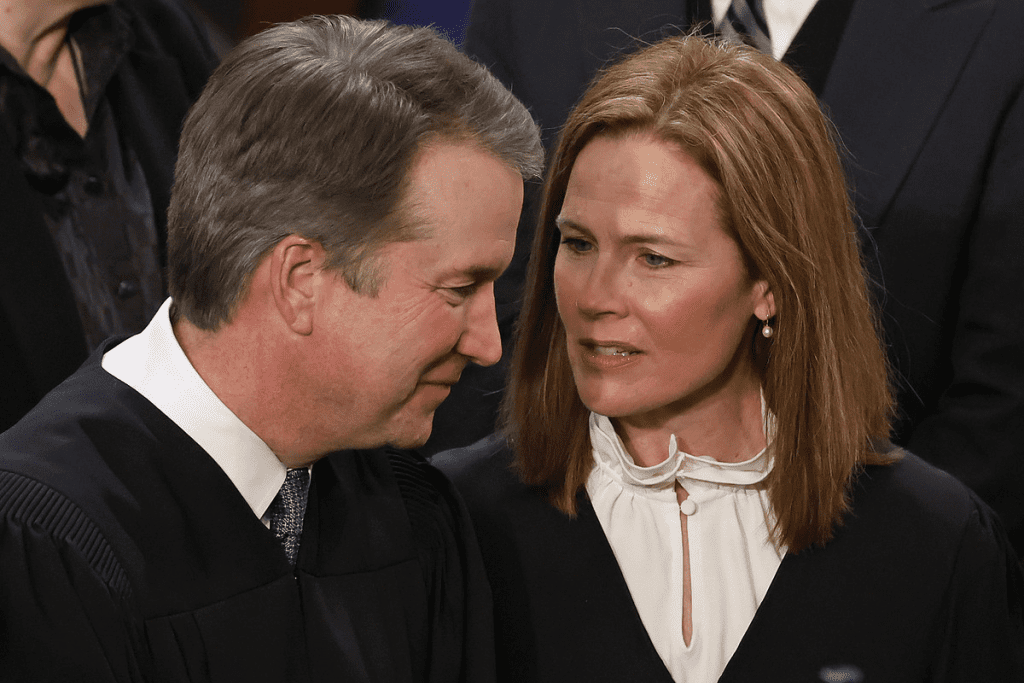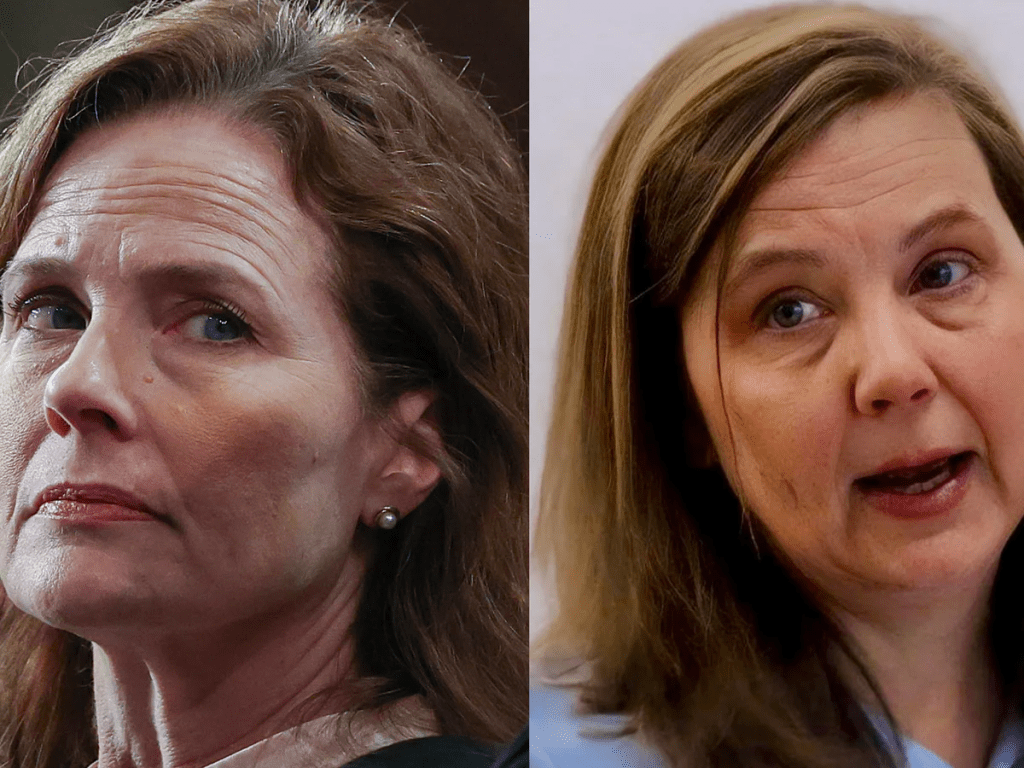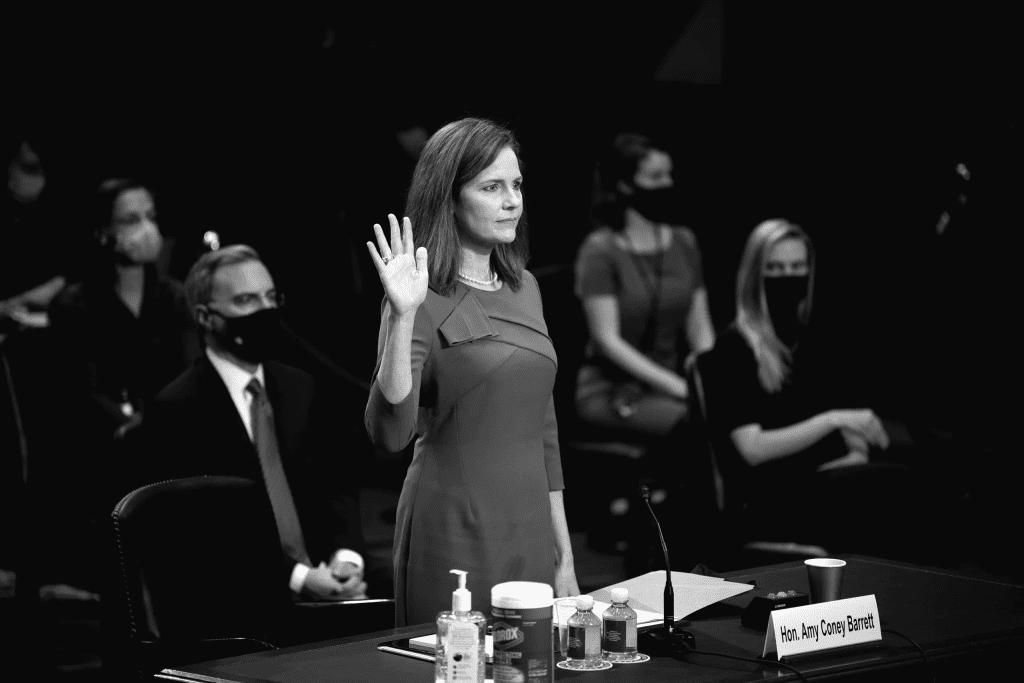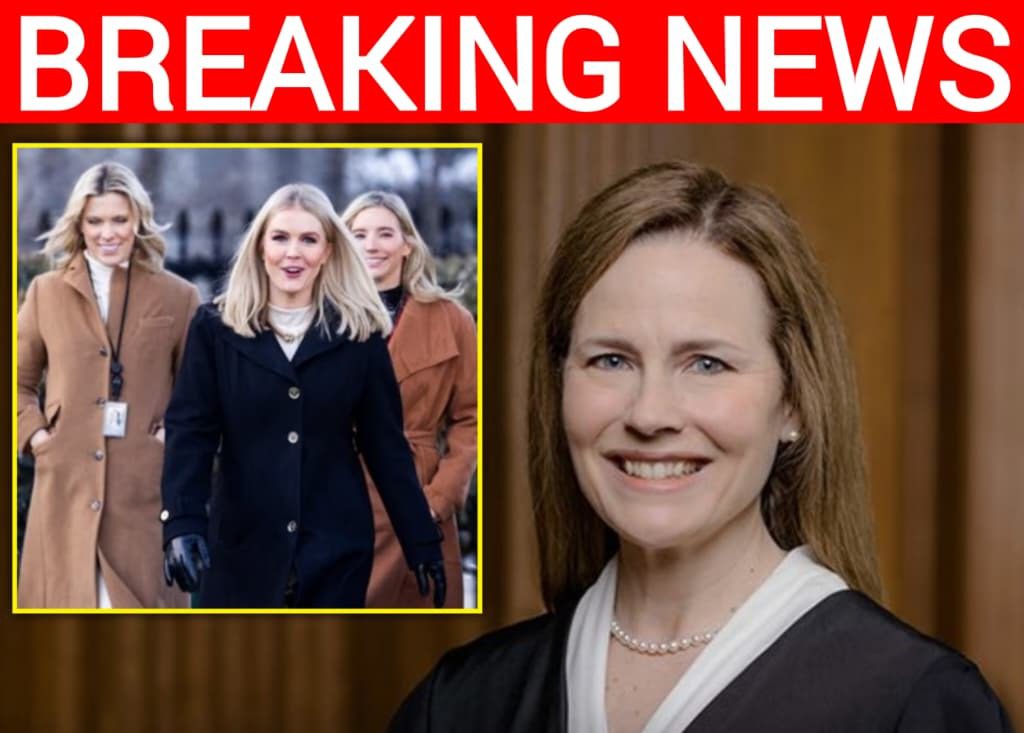Supreme Court Justice Amy Coney Barrett Tells Conservative Women in Law School They’re the True Feminists — and the Left Has It Backwards
In a charged evening at Washington’s annual gala hosted by the Federalist Society, Amy Coney Barrett stood before a hall packed with conservative law students and delivered remarks that are already reverberating across campuses. She didn’t speak about landmark cases or legal strategy. Instead, she zeroed in on something far more personal: the courage required of women who hold conservative beliefs in law school today. Barrett declared, “In truth, being a conservative woman in law school, particularly, takes a lot of courage and independence, and in many ways shows more feminism than just falling into some predetermined vision of what a woman should be.”
As the audience, largely composed of young women pursuing legal careers under what Barrett described as “social media-suffocated expectations,” hung on each word, the message landed loud and clear. She described her own path — a mother of seven, a Supreme Court Justice, and someone who has undergone public pressure, protests, and threats — as “counter-cultural” in a profession where conformity is often rewarded.

Barrett didn’t shy away from acknowledging the realities conservative women face. She spoke of the “kind of poisonous hostility” she says still exists on campuses and beyond, referencing the 2025 assassination of conservative activist Charlie Kirk and urging law students not to respond in kind. Instead, she offered a counsel of strength and grace. “Fighting poison with poison doesn’t work,” Barrett said.
Her remarks followed that of her colleague, Brett Kavanaugh, who urged all law students to “be not afraid to pursue what you know is right, even when you’re going to get criticized for it.” While Kavanaugh spoke broadly about principled persistence, Barrett targeted her message to women, especially those within the legal academy and profession who find themselves at the crossroads of ideological expectation and personal ambition.
The timing and tone of her remarks matter. In a nation where debates over gender, feminism and professional identity continue to evolve, Barrett’s message — that conservative women may embody a truer form of feminism than those who simply default to liberal ideology — touched a nerve. For many attendants, it validated feelings of isolation and pressure. For others, it sparked deeper questions about what feminism means in 2025.

Barrett emphasized choice: whether to pursue marriage or career, children or none. “All women should feel free to truly choose whatever it is they want, whether it is to be conservative or to be liberal or to have large families, to not get married; whatever it may be. … There is no stereotype of what a professional woman should look like. You don’t have to fit into any box.”
That assertion resonates deeply with Smitha Kumar, a second-year law student at a Midwest university who attended the gala virtually. Kumar says she often feels squeezed between progressive classmates who assume her beliefs are “anti-women” and faculty who question her future plans. “Hearing Justice Barrett say what I feel was unbelievably freeing,” Kumar said in a post-event interview. “She wasn’t talking about liberal vs. conservative. She was talking about freedom and authenticity.”
But the reaction wasn’t universally positive. Some campus commentators questioned Barrett’s framing, suggesting that linking feminism solely to ideological defiance may oversimplify deeper concerns of gender equity and systemic bias. One senior policy analyst said, “Barrett raises genuine issues about pressure in professional schools, but framing conservative women as the ‘real feminists’ risks turning a rich, diverse feminist movement into a partisan badge.”
Still, within conservative circles, Barrett’s speech is being hailed as a rallying cry. Her origin story — a Trump-appointed justice nominated in 2020, mother of seven, former Harvard Law alumna — is often cited as evidence of her ability to bridge professional success with personal conviction. At the gala, she did not talk in political soundbites but in personal reflection, and that grounded her words in real lived experience.

Several moments stood out. When she described protests at her home over her role in precedent-shifting decisions and mentioned death threats, the room grew silent. “You can’t take an oath to the Constitution if you’re not willing to sacrifice,” she said. The candor underscored the weight of public life and the expectations carried by women in high-visibility roles.
Her critique of social media’s influence also struck a chord. In describing how the “expectations at law schools” can suffocate women, she pointed to digital culture where everything from career trajectory to family choice becomes fodder for judgment and conformity. Barrett encouraged her audience to rise above the “preset boxes” of feminist or professional identity and carve their own paths.
Within the conservative legal movement, the speech is likely to become a touchstone. Organizations like the Federalist Society, which co-hosted the event, describe themselves as defenders of legal principle in a time of cultural flux. With Barrett’s presence and message, the gathering drew not just attention but forward momentum — younger attendees said they felt seen in a way they often had not.
Her message also folded into a larger theme of the Trump-era judiciary: moving past narrow ideological labels and returning to a vision of public service defined by principle, commitment, and resilience. Barrett’s words nod to that vision — of women unafraid of pushback, unshaken by labels, and unwavering in the exercise of their convictions.

Barrett’s reference to Kirk’s assassination and her message on campus hostility also reveal how acute she views the tensions faced by conservative women. “In the face of the kind of poisonous hostility that led to Charlie Kirk’s murder … still exists on campuses and elsewhere,” she said. “The best response is to keep Erika Kirk’s example in mind — strength with grace.” Critics argue the linking of campus culture with violent incidents may overly dramatize the environment, but attendees reported the lines resonated deeply.
The personal narrative Barrett shared — of choosing large family, opting for a law career, navigating public scrutiny — gave gravity to her message. She implicitly challenged women to evaluate: Is feminism about a checklist of achievements, or is it about the freedom to define success on your own terms? Her answer: the latter.
That notion echoes in the quiet conversations now circulating among supporters. A law student from Texas posted after the event: “For the first time I heard a senior judge say: ‘Your dreams are valid even if they don’t look like mine.’” In conservative law forums, the speech is already being dissected in mentorship programs and study groups.
In an era where higher education is frequently scrutinized for ideological imbalance, Barrett’s remarks carry additional weight. She didn’t just ask conservative women to stand firm — she told them they are the vanguard of a new kind of feminism, one rooted not in prevailing trends but in authentic choice. “Being conservative doesn’t mean being silent,” she said. “It means being true to your convictions.”
As the evening drew to a close and applause echoed through the gala hall, it was clear that Barrett’s message had not merely been heard — it had landed. Whether it changes the broader narrative of feminism and women’s roles in the legal profession remains to be seen. But for the hundreds of students in attendance, the moment marked a shift: a call to courage, a reminder of autonomy, and a promise that their paths matter.
In the months ahead, Barrett’s words are likely to ripple beyond that gala stage — they’ll inform the conversations women have about law school, family decisions, and the pressures of public life. The stakes are high: a generation of conservative women now equipped not just with ambition, but with ideological affirmation.
The question now is whether that affirmation translates into action — in clerkships, classrooms, courtrooms, and careers. For Amy Coney Barrett, the answer is clear: Yes, it must. The event may have been a dinner, but its implications extend into professional and personal spheres alike, promising to reshape how conservative women view success, service, and sisterhood.
The echo of her words — “You don’t have to fit into any box” — will stay long after the spotlight fades, challenging a legal profession to recognize that feminism, like justice itself, is not a one-size-fits-all category.


